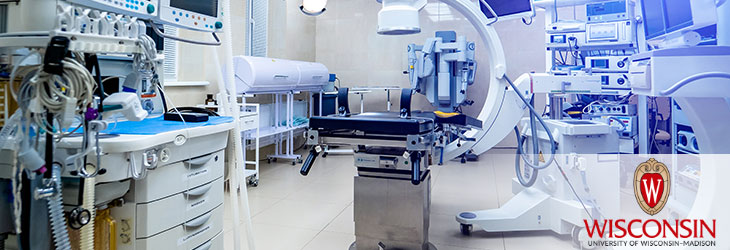Medical Devices

Biomarkers for Detecting Prostate Cancer
WARF: P130258US03
Inventors: David Jarrard, Bing Yang
The Wisconsin Alumni Research Foundation (WARF) is seeking commercial partners interested in developing a new method of diagnosing prostate cancer and reducing the number of invasive tissue biopsies.
Overview
Prostate cancer is the second most common cancer in American men, causing more than 27,000 deaths every year. An estimated one man in seven will be diagnosed with prostate cancer during his lifetime.
Early detection is critical but today’s screening methods (prostate specific antigen or PSA testing, and digital rectal exam) are far from perfect. For example, PSA tests often detect non-significant cancers, leading to an estimated 50 percent of overdiagnoses. Needle biopsy has become the standard to confirm the diagnosis of prostate cancer, but eight to 30 punches may be required. The procedure is invasive, plagued by false negatives (as high as 34 percent) and may have to be repeated multiple times because of sampling errors.
The development of an easy and accurate test to augment PSA screening would be of enormous benefit.
Early detection is critical but today’s screening methods (prostate specific antigen or PSA testing, and digital rectal exam) are far from perfect. For example, PSA tests often detect non-significant cancers, leading to an estimated 50 percent of overdiagnoses. Needle biopsy has become the standard to confirm the diagnosis of prostate cancer, but eight to 30 punches may be required. The procedure is invasive, plagued by false negatives (as high as 34 percent) and may have to be repeated multiple times because of sampling errors.
The development of an easy and accurate test to augment PSA screening would be of enormous benefit.
The Invention
UW–Madison researchers have identified eight genetic markers, or biomarkers, for prostate cancer. They can be detected in histologically normal prostate samples and/or the bodily fluids of men with no history of prostate cancer.
The biomarkers act as red flags, exhibiting abnormal methylation levels when cancer is present in peripheral prostate tissue (this is called cancer ‘field defect’). These changes are believed to represent early stages of the cancer process.
The biomarkers are associated with the genes CAV1, EVX1, MCF2L, FGF1, WNT2, NCR2, EXT1 and SPAG4.
The biomarkers act as red flags, exhibiting abnormal methylation levels when cancer is present in peripheral prostate tissue (this is called cancer ‘field defect’). These changes are believed to represent early stages of the cancer process.
The biomarkers are associated with the genes CAV1, EVX1, MCF2L, FGF1, WNT2, NCR2, EXT1 and SPAG4.
Applications
- Prostate cancer screening
- Early detection of men at risk for prostate cancer
- Prostate cancer prognosis
Key Benefits
- May be detected noninvasively in body fluids such as urine
- May reduce the number of biopsies required to detect prostate cancer and confirm diagnosis, leading to decreased morbidity
- May enable detection of prostate cancer in histologically normal prostate tissue or bodily fluids from men with no PSA abnormality
- Allows patients and physicians to make more informed treatment decisions
Additional Information
For More Information About the Inventors
Related Technologies
For current licensing status, please contact Jennifer Gottwald at [javascript protected email address] or 608-960-9854